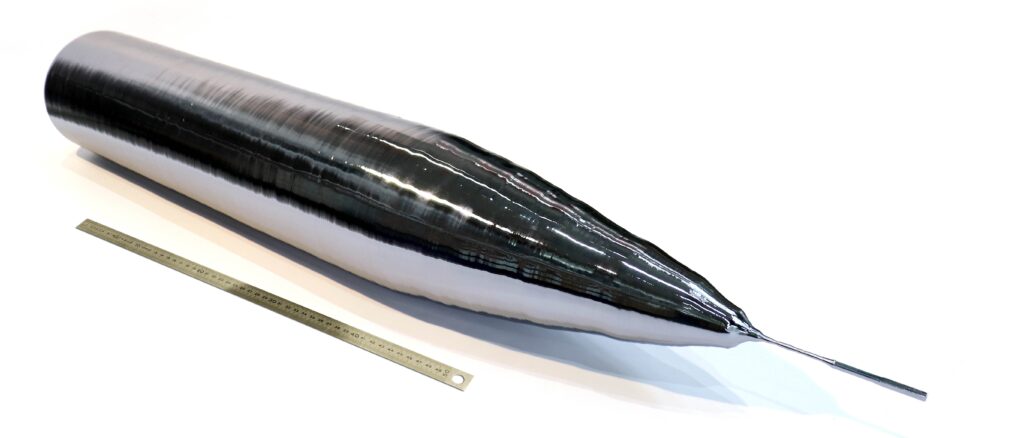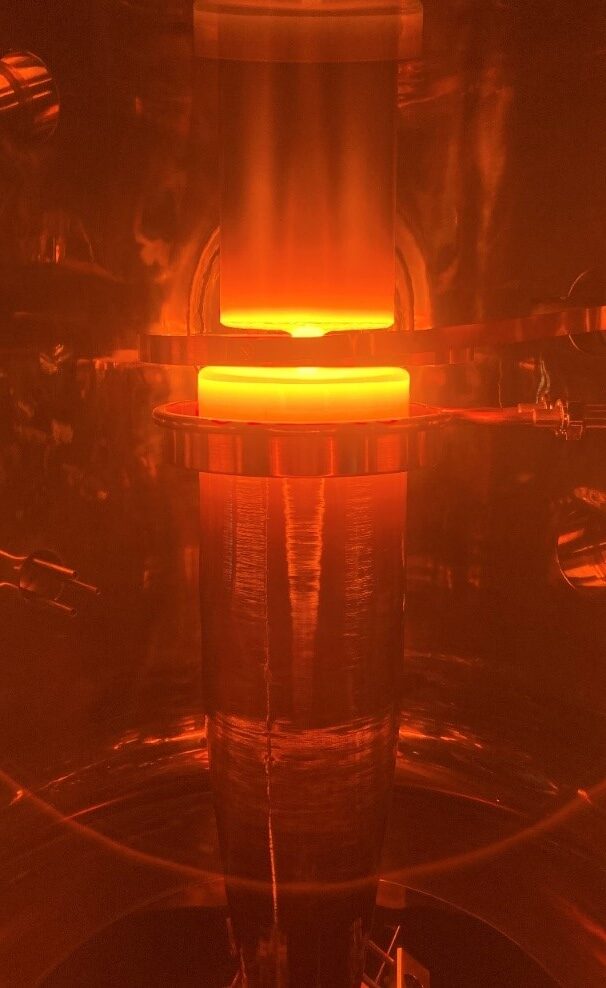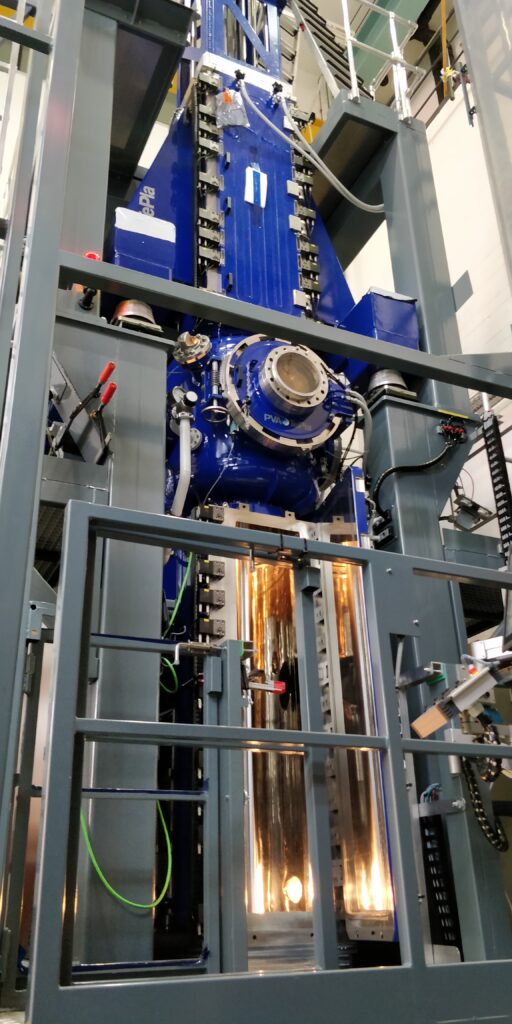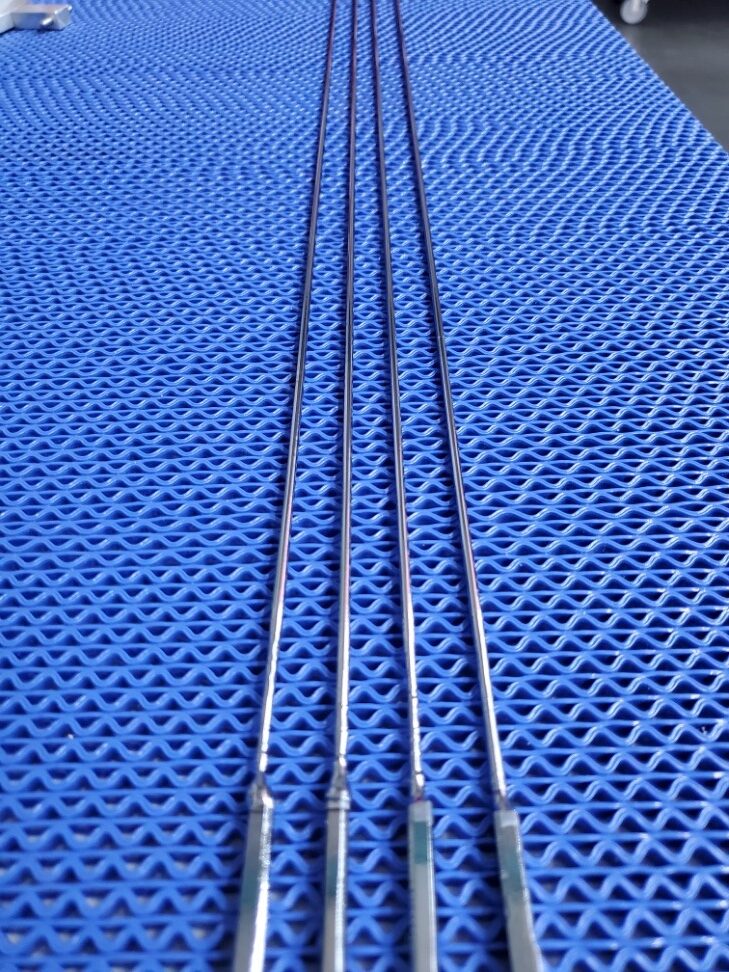Leibniz-Institut für Kristallzüchtung (IKZ) has joined ET
12.12.2024
The Leibniz-Institut für Kristallzüchtung (IKZ) in Berlin has joined the international Einstein Telescope (ET) collaboration as a research unit (RU-Berlin). The IKZ is a state-of-the-art competence center for crystalline materials. Its mission for ET is to provide crystalline silicon material and crystal growth know-how for the production of ET interferometer mirror and mirror suspensions.
Silicon crystal growth using the Float-Zone (FZ) method is a long-standing expertise at the IKZ. The crucible-free FZ technique stands out for its ability to produce silicon crystals of ultra-high purity and crystalline perfection. Contactless induction heating of a molten zone held by surface tension forces allows growth without contamination. In the semiconductor industry, the FZ method is used to manufacture substrates for high-power devices critical for energy conversion, including applications in e-mobility and renewable energy. For ET mirrors, FZ silicon would offer excellent optical quality and low absorption due to its high purity and lack of structural defects, such as dislocations. However, the FZ method currently cannot achieve the dimensions required for ET mirrors. The largest FZ crystal diameter that can be achieved nowadays is 200 mm.
For growth of large silicon crystals, the IKZ laboratory features a state-of-the-art FZ crystal puller PVA-TePla FZ30M, a 2.8€ million investment made in 2020. Silicon crystals with a large diameter of 150 mm and ultra-high purity (specific electrical resistivity > 10 kΩcm) were delivered to ET Pathfinder. In Maastricht the optical and mechanical properties, as well as other aspects like polishing and coating of future test masses, are now being investigated. For broad-spectrum impurity analysis and extended absorption measurements, an FZ crystal with a 100 mm diameter was grown at IKZ and provided to the Institute for Gravitational Research in Glasgow.
In the future, IKZ aims to further support the development of silicon mirror material in collaboration with partners from industry and academia, such as the newly established German Center for Astrophysics (DZA).
For the ET mirror suspension system, thin and long silicon fibers with a diameter of about 3 mm are required. As part of the joint research project 3G-GWD, a crystal growth setup was developed at IKZ to enable the stable production of such monocrystalline silicon fibers. Using the FZ method and a similar approach known as the Pedestal method, silicon fibers with a uniform diameter of 3 mm and lengths of up to 1 m were successfully grown. These fibers were supplied to ET Pathfinder, the University of Glasgow, and the University of Camerino for tests on mechanical strength and material characterization. The growth of fibers with specially shaped endings for fiber-to-mirror attachment techniques remains a challenge and is currently under investigation at IKZ.

© IKZ

© IKZ

© IKZ

© IKZ